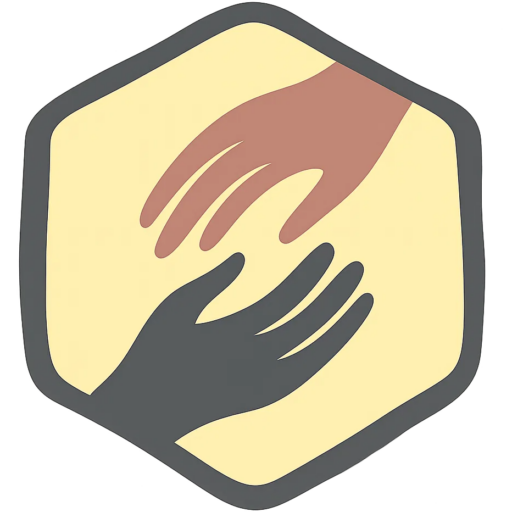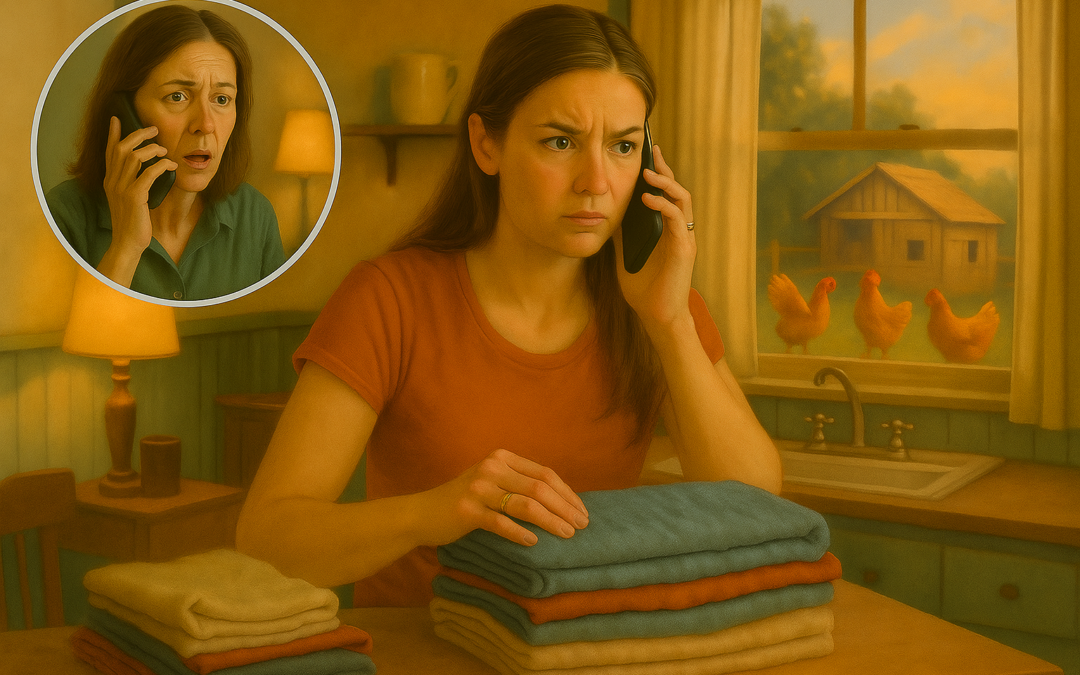A Story of Kinship in Eastern Kentucky
This is a fictionalized story inspired by real accounts, based on a Louisville, KY Bellarmine University thesis. The research paper was on Appalachian Kinship and authored by Taryn Rollins.
Marshall, Kentucky, sits tucked into the rolling hills just east of Lake Cumberland. It’s the kind of place where gardens grow in neat rows behind clapboard houses and folks wave even if they don’t know you.
The Sutherland family has been here for decades, a tight-knit clan with deep roots in both the soil and each other. Sunday night dinners are sacred. Chickens cluck in the backyards, kids run barefoot through the grass, and herbs dry on the porch railings. If you ask Ada, the family matriarch, what matters most, she won’t hesitate—family over everything, always.
One Friday night in early June, just as the lightning bugs were starting to show themselves, the Sutherlands got the kind of call that makes your heart drop. Linley, 21, Ada’s daughter and the youngest of three, was at home folding laundry when her phone buzzed. It was her mother, Ada, 52, a counselor at a drug rehabilitation center. Her voice was tight.
“Lin, it’s your grandma. She’s in the hospital. They’re airlifting her to Lexington. It’s bad.”
Linley’s hands shook. “Oh no… Mama, is she awake? Can I talk to her?”
Ada paused, then said, “Yes, but you need to hurry.”
Linley pressed the phone to her ear. “Grandma, it’s me. I love you. You hear me? I love you.”
Her grandmother’s voice was faint but steady. “I hear you, sugar. Don’t you cry now. You tell everybody I said to stick together.”
Minutes later, the helicopter’s blades thumped across the sky.
The Rally
Within 30 minutes, the family had a plan. Penny, 33, a middle school teacher married to Ada’s son Mack, 29, took JoAnna’s oldest, Lola, age 8, for the night. Rickey, JoAnna’s husband and a Home Depot employee, made up a pallet—a blanket and pillow spread on the floor—for the two littlest ones, Lucy, 2, and Logan, 1, and kept them entertained with an old Barney show.
Linley and her husband Collin, 24, who both worked part-time at a local state park, headed to Ada’s kitchen to finish wrapping JoAnna’s baked goods for the Saturday festival in downtown Marshall. Though Linley and Collin live about thirty minutes from Marshall, the rest of the family live only about ten minutes from each other. They see each other every Sunday night for dinner and sporadically throughout the week as their schedules permit.
While the world outside slowed to a summer night stillness, inside the Sutherland homes it was all hands on deck—measuring, bagging, labeling for the festival, making sure that, despite the fear hanging in the air, life and commitments kept moving.
JoAnna, 31, Ada’s eldest daughter and mother of three, arrived late that night, eyes puffy but determined. “Mama says to keep the booth going. Grandma wouldn’t want us to sit at home moping.”
The next morning, Linley wrangled the kids into clean clothes while JoAnna loaded the car. At the Marshall Summer Fest, the Sutherlands’ booth smelled of cinnamon bread and lavender soap. Customers drifted in, and in between sales, family members took turns checking their phones for updates from the hospital.
By afternoon, the news came through: Grandma had made it through surgery but was in the ICU. It wasn’t time to celebrate, but it was enough to let everyone exhale.
“You Scared Us”
A week later, Grandma was home. She looked smaller in her recliner, a blanket tucked around her shoulders. A pot of pinto beans simmered on the stove—Ada insisted on cooking her mother’s favorites, even if she wasn’t ready to eat much yet.
Lola climbed into her lap. “Grandma, you scared us.”
Grandma chuckled. “Well, that makes two of us, honey. But I reckon the good Lord wasn’t done with me yet.”
Mack came in from the porch, brushing dust from his jeans. “We got your tomatoes staked, Mama. And Penny’s been checking your cucumbers.”
Grandma nodded approvingly. “Good. They’ll be ready by Sunday dinner.”
Stronger Than Ever
That Sunday, the Sutherlands gathered like always, but with an extra sense of gratitude. The table groaned with fried chicken, cornbread, and beans from the garden.
As they passed plates, Ada looked around. “See, this is what grandma meant. No matter what happens, we take care of each other.”
Walter, 50, Ada’s husband and a Navy veteran, raised his sweet tea glass. “FOE,” he said. The whole table echoed it back—Family Over Everything.
Linley caught her grandmother’s eye. “You know, you’re the one who taught us that. Even when you were in the hospital, you told me to tell everyone to stick together.”
Grandma smiled. “And I’ll keep saying it ‘til my last breath. You can lose a crop, you can lose a job—but you don’t let go of each other.”
Walter’s Story
After the plates were cleared, Walter leaned back and told the kids a story they’d heard before but never tired of. When he moved here from up north as a nine-year old boy, his first school in Kentucky had a coal stove in the middle of the room for heat. He thought he’d stepped back in time.
It wasn’t just the stove that was different—it was the people. Back home, folks were polite enough, but here it felt like everyone was kin somehow. “Your mama showed me what family’s supposed to be—loving, accepting, loyal. It’s us against the world,” he told them.
Ada reached for his hand. “And now you’re part of it. FOE forever.”
Walter nodded. “Wouldn’t trade it for anything.”
More Than Just Kin
In eastern Kentucky, family isn’t just blood—it’s the neighbor who shows up with a casserole, the cousin who fixes your fence without asking, the friend who drives your kids to school when your truck’s in the shop.
The Sutherlands live this truth every day. They trade eggs, herbs, and stories. They share burdens and victories. And when crisis hits, they drop everything to circle the wagons.
A hospital trip might have shaken them—but it also reminded them of the roots holding them steady. Caregiving goes all around the family.

